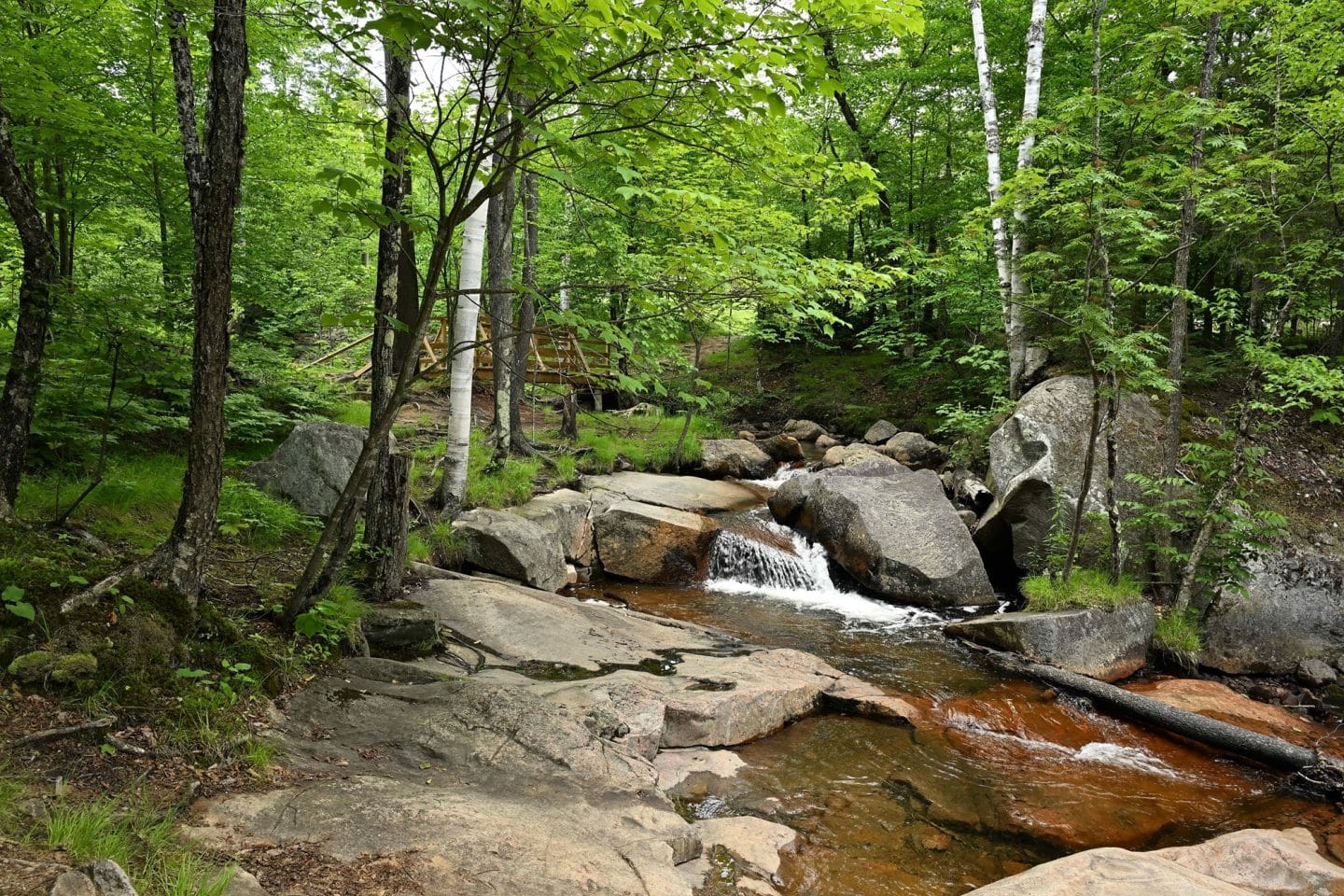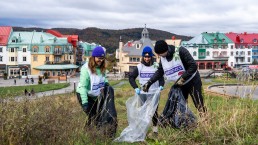For several years now, Station Mont Tremblant has encouraged its employees to actively contribute to sustainability through an internal eco-friendly ideas competition. In 2024, within this framework, Mathieu Burdett, a lift operator, presented his project “Keep Your Mountain Clean” to the Sustainability Committee. His goal is to raise awareness among hikers and other trail users about the impact of leaving waste in nature.
Why this project?
The mountain is a place of rejuvenation, freedom, and wonder. But behind its stunning landscapes lies a persistent problem threatening the health of our ecosystems: litter on the trails.
Every year, tons of waste are left behind in nature—whether it’s a banana peel, a granola bar wrapper, or a plastic bottle. Some of these items take decades or even centuries to break down.
Here are some examples of how long common objects can take to decompose in the environment:
- Organic waste – 3 to 12 months
- Cigarette – 2 to 5 years
- Can – 50 to 200 years
- Plastic bag – 300 to 500 years
- Plastic bottle – 500 to 1,000 years
- Glass – 4,000 years
- Battery – 8,000 years
The effects of decomposition also impact the health of natural habitats, wildlife, plant life, and humans alike.
Environmental Impacts
Water Pollution
Abandoned waste eventually breaks down, releasing harmful substances. Plastics fragment into microplastics invisible to the naked eye, contaminating rivers, lakes, and groundwater. Other waste—like cigarette butts, laminated packaging, or batteries—releases chemicals such as mercury, lead, or cadmium that seep into the soil before reaching drinking water reserves. These pollutants disrupt aquatic ecosystems, harm biodiversity, and make water treatment more complicated and costly.
Threats to Wildlife
Waste is a major danger to wild animals. Many mistake plastics, packaging, or food scraps for food, leading to intestinal blockages or gradual poisoning. Nets, plastic bags, and can rings often cause serious injuries, strangulation, or amputations. Toxic substances from these wastes accumulate in animals, causing health problems, reducing reproductive ability, and sometimes leading to death, which disrupts population balance.
Impact on Plant Life
Plants and soil are also affected by pollution from waste. Toxic substances like hydrocarbons and heavy metals alter soil chemistry and disrupt its natural balance. These disturbances slow plant growth, weaken root systems, and reduce reproductive capacity. Over time, polluted areas become less fertile and host fewer native plant species, giving invasive plants better chances to take hold and leading to gradual biodiversity loss.
Risks to Human Health
The consequences of environmental pollution eventually affect us directly. Microplastics and chemicals in water and soil enter the food chain. Fish and animals that consume these pollutants become sources of exposure for humans. Some toxic compounds, such as lead, mercury, and dioxins, are known to cause neurological, hormonal, or cancer-related issues. Contamination of groundwater also complicates access to clean drinking water, posing significant health risks, especially in regions where water resources are already limited.
How You Can Make a Difference
- Pack it in, pack it out: Whatever you bring to the mountain must come back with you.
- Reduce at the source: Use reusable bottles, containers, and unpackaged snacks.
- Pick up along the way: Small actions can have a big impact.
- Spread the word: Talk to family, friends, and hiking groups—every conversation matters.
One Small Action, a Huge Impact
Protecting the mountain means preserving a unique natural heritage and a home for thousands of species. By participating in “Keep Your Mountain Clean”, you join a movement that goes beyond hiking: a collective commitment to nature and future generations. Together, let’s ensure the only trace left on the mountain is the one we make with our footsteps.
Learn more about Tremblant eco-responsible initiatives









